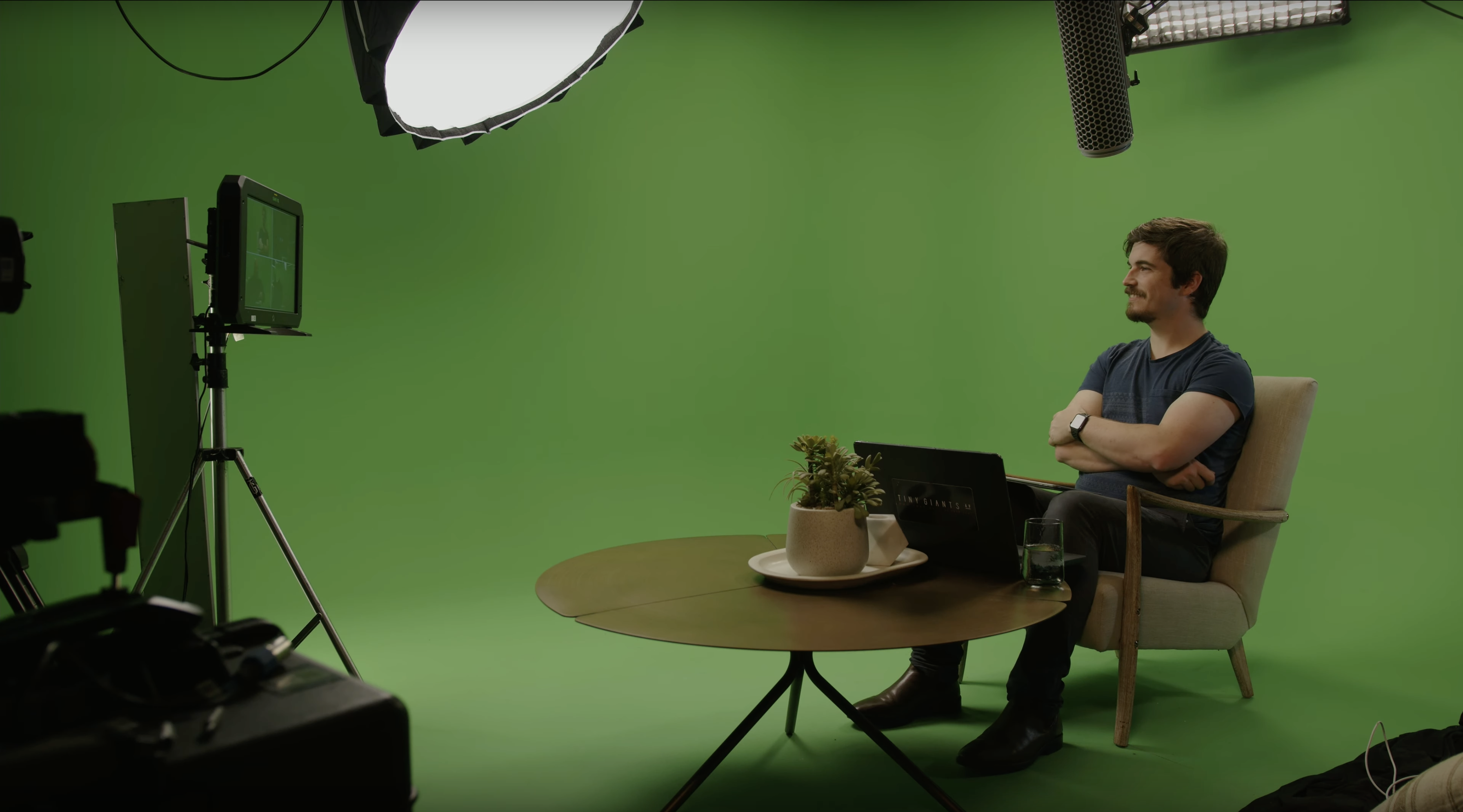
As video professionals, SociallyU president André Dantzler and his team are always looking to push the boundaries of creativity. Inspired by the groundbreaking virtual interview Oprah did in 2020 from her home in Santa Barbara with Barack Obama, who was in D.C. at the time, Dantzler’s team partnered with Ryan Somerfield, director and DP at Tiny Giants AV to test out their own remote interview workflow—but taken up a few notches. The results of the test surprised them, and they believe it will ultimately help clients and other studios achieve a seamless virtual production interview experience that is no longer reserved for presidents or the broadcasting elite.
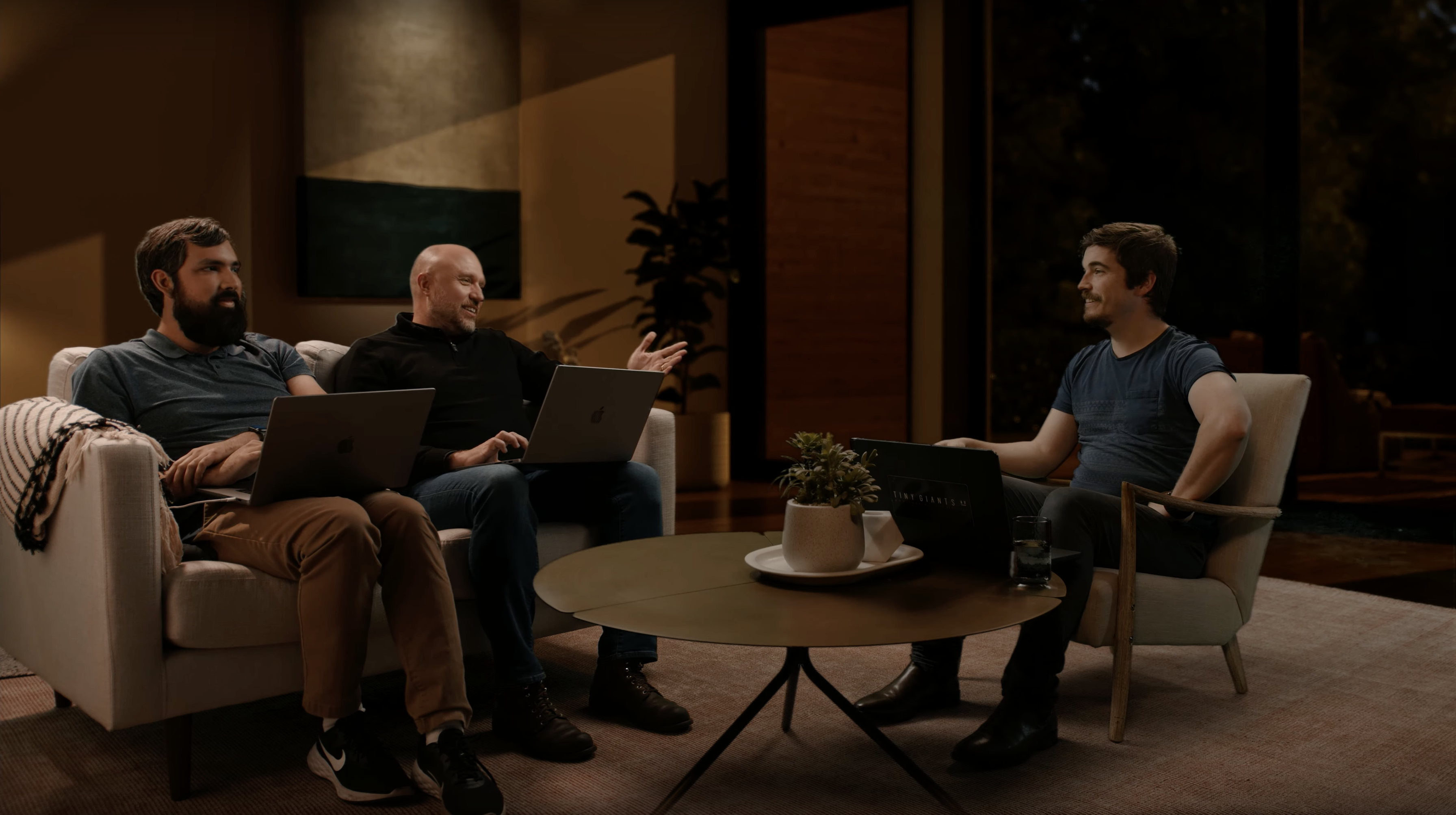
Live Streaming Made Easy
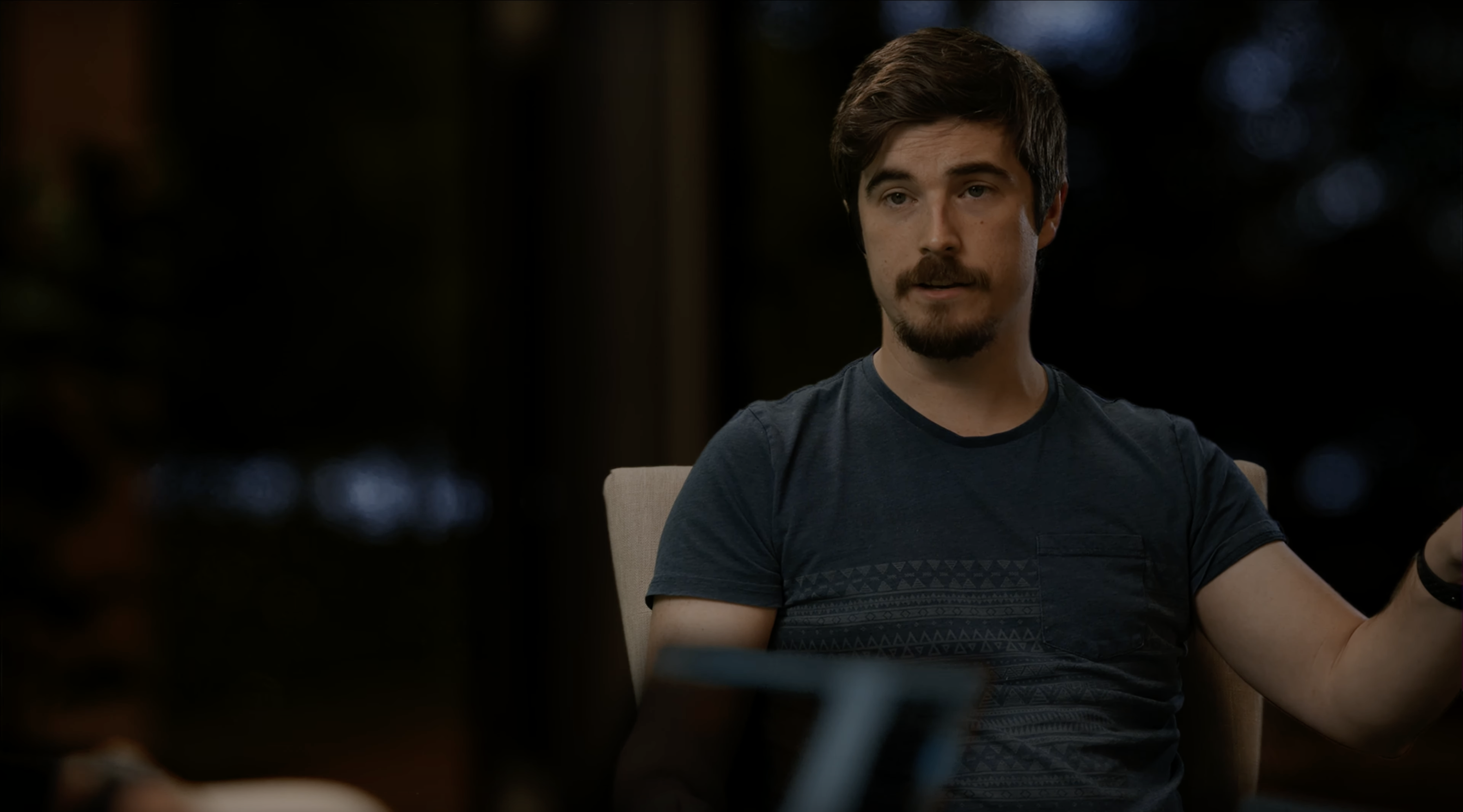
With Tiny Giants AV located in Sydney, Australia, and SociallyU located in Chattanooga, Tennessee, SociallyU endeavored to create a live-streamed virtual production interview that spanned continents. Their setup included four cameras in each location, for a total of eight cameras, which allowed them to create the look of a five-camera interview. They combined four of the camera feeds into two different over-the-shoulder shots, and another two feeds were combined to create one comprehensive wide shot. Their cameras included a mix of Blackmagic Studio Camera 6K Pro, Blackmagic URSA Broadcast G2, Blackmagic URSA Mini Pro 4.6K G2, and Blackmagic Pocket Cinema Camera 6K Pro, all of which they were able to work with and manipulate to match things as much as possible. All cameras were fed into an ATEM Constellation 8K live production switcher.
They also used eight Blackmagic Ultimatte 12 4K real-time compositing processors—seven in the US and one in Australia for combined remote keying—with Tiny Giants AV’s feed coming to SociallyU where the Ultimattes performed the live keying. To unify the backgrounds, they used five Unreal Engines—four at SociallyU and one at Tiny Giants AV—all synchronized in real-time. They also heavily utilized the key and fill layer input on the Ultimattes to layer shots on top of each other, a feature that was critical in creating convincing over-the-shoulder shots.
[Introducing the New Family of Blackmagic Design Routers]
No Streaming Workflow Challenge Too Great
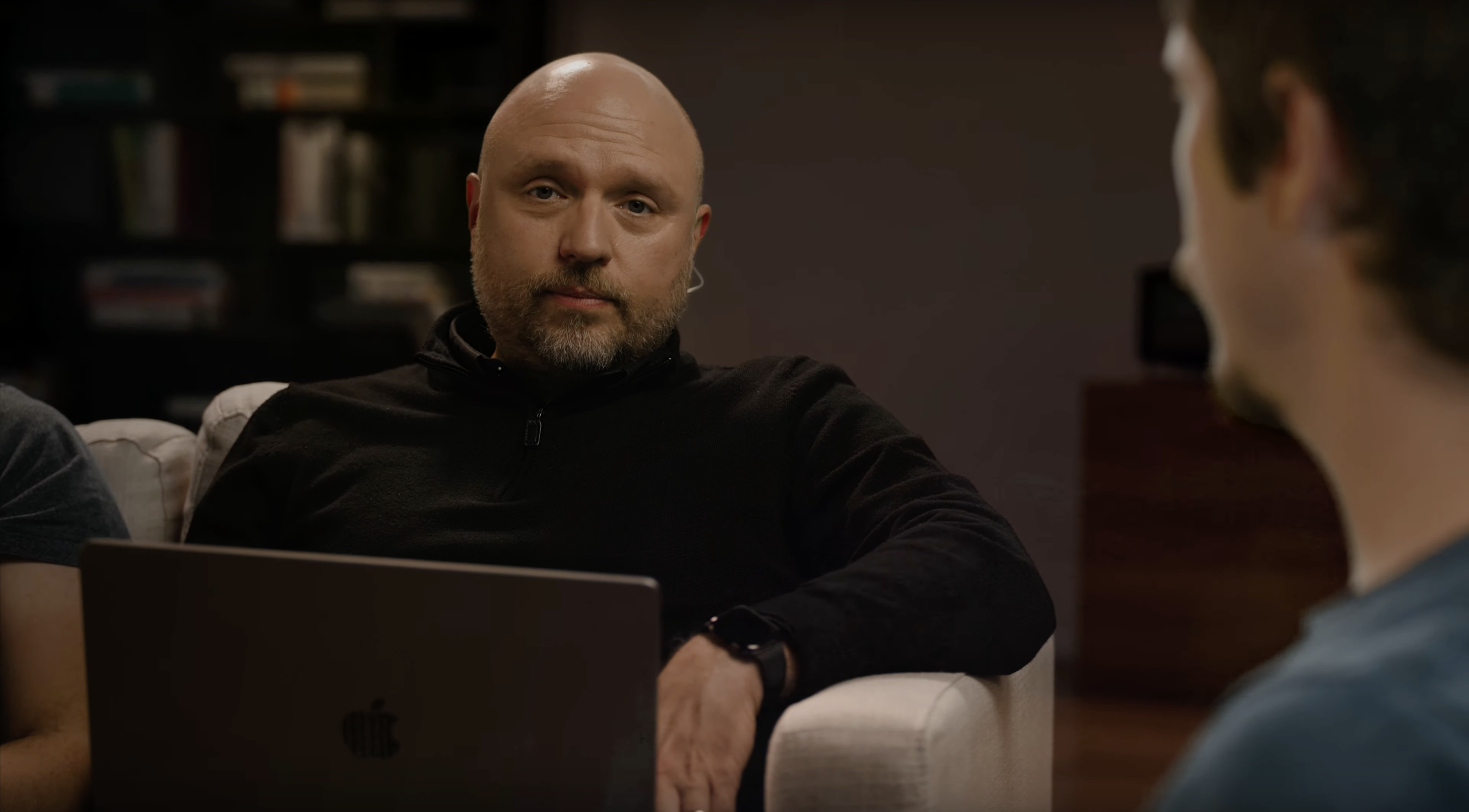
Testing was more complicated than originally anticipated, but the team at SociallyU has been very pleased with the results. They wanted to take this workflow to the next level, so they did things with keying not seen anywhere else, such as including two moving shots in each location using a camera slider connected into their Unreal computers, which rendered live. They figured out how to make it seem like they were looking at each other during the interview, but also added over-the-shoulder shots where both participants are included in the shot to increase realism. If one person raised their hand, for example, it would appear in the other person’s shot. When it came to the wide shot, the team layered in elements like the floor, the carpet, and the coffee table, achieving more dimensionality by merging foreground elements together.
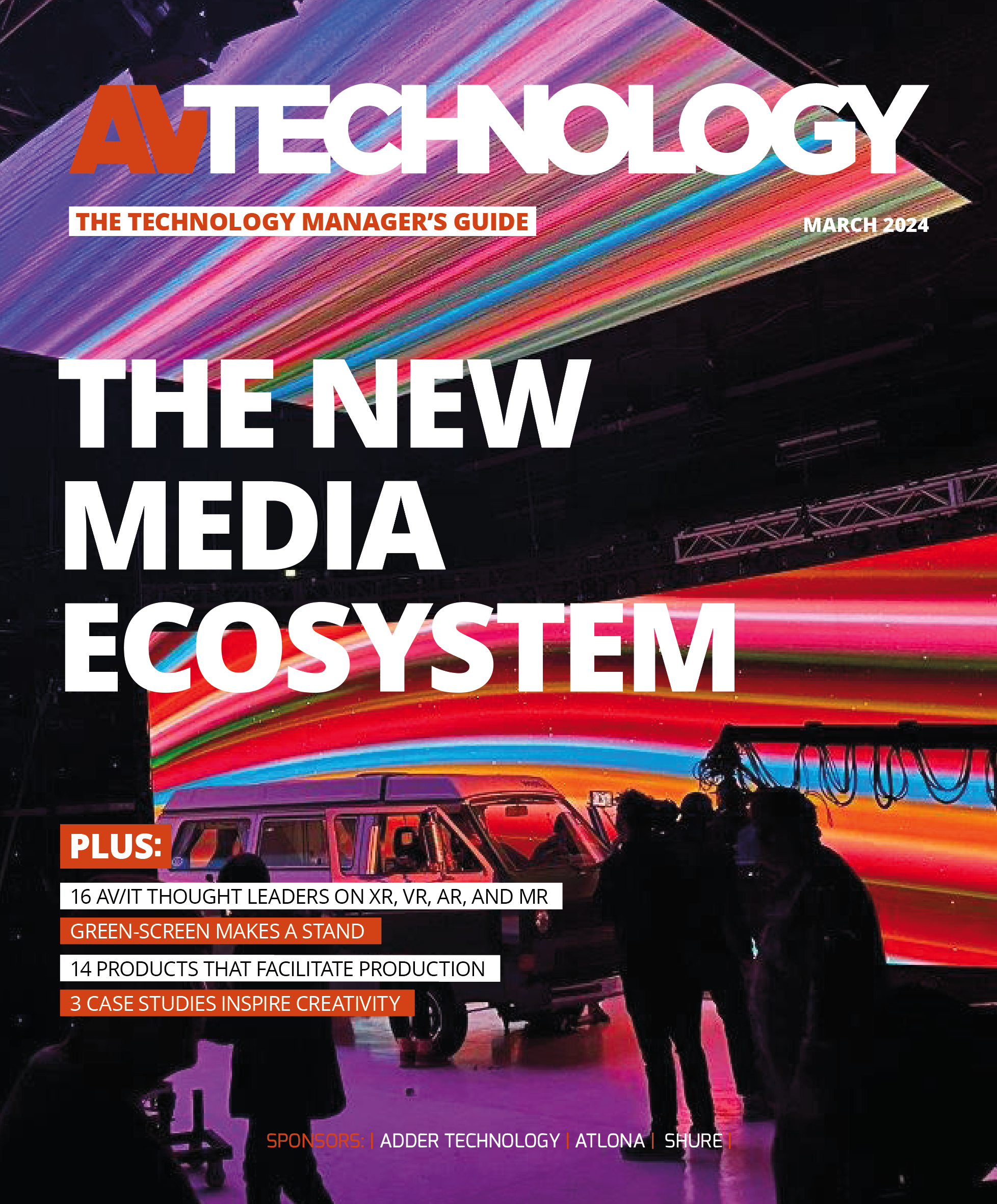
They also had to factor in a two-second delay on the cameras in Chattanooga and managed that by both talking and video back-hauling over Zoom to facilitate the live conversation. This meant their control room had to live in “the past” in order to be able to live-cut the show. As a result, this created a new challenge in communicating with talent from the control room, as the control room’s responses to the questions would be delayed. They used a Blackmagic DeckLink 8K Pro capture and playback card to output the four SRT feeds. They did all of this in 4K, so they couldn’t just use Zoom, which is limited to 1080. With SRT, they were able to get higher quality, control the bandwidth, and get a much cleaner key because it was all in 4K.
The Sky is the Limit for Virtual Production Interviews
Overall, the feel that they have only scratched the surface so far, and that the sky is the limit on virtual production interviews. Post-pandemic, it’s a balance between getting people back in a room together, a continued demand for virtual offerings, and enhanced real-time interaction, such as live, on-screen chats. Today, bringing in guests can be executed in new and exciting ways without the need for guests to be in the same location physically.







